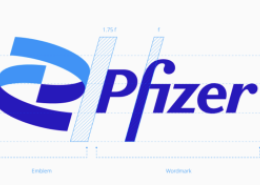Pfizer to Present New Clinical Data Highlighting Customized Treatment Approaches For Difficult-To-Treat Cancers
Data across 9 Compounds Targeting Multiple Tumor Types to Be Presented
(BUSINESS WIRE)--Pfizer will present new data highlighting the company’s commitment to a personalized approach to oncology clinical research, which includes the use of targeted agents in specific patient populations in several advanced and difficult-to-treat cancers. These data will be presented later this month at the 45th Annual American Society of Clinical Oncology (ASCO) annual meeting in Orlando from May 29 to June 2.
“Pfizer Oncology is building upon the foundation of our marketed agents Sutent, Camptosar, and Aromasin. Our research is focused on bridging new insights into cellular targets and causative pathways with therapies designed to inhibit those processes. In this way, we hope to bring the right drug to the right patient at the right time. Presentations made at this year’s ASCO meeting will demonstrate the progress that we are making towards that goal,” said Dr. Mace Rothenberg, senior vice president of clinical development and medical affairs for Pfizer’s Oncology Business Unit.
Pfizer will present data evaluating PF-002341066 (Abstract #3509; May 30), an investigational oral medicine that is a dual inhibitor of mesenchymal epithelial transition growth factor (c-Met), a receptor commonly altered in human cancers across a variety of solid tumor types, and anaplastic lymphoma kinase (ALK). Results from an expansion cohort of a Phase 1 study in patients with non-small cell lung cancer (NSCLC), carrying ALK fusion genes, will be presented. ALK fusion genes have a unique genetic feature, including the echinoderm microtubule-associate protein-like 4 (EML4)-ALK translocation. PF-002341066 is the first agent in clinical development that selectively targets this unique genetic feature present in some NSCLC patients.
Pfizer will also present data (Abstract #8072; May 30) from a Phase 2 study of figitumumab (CP-751,871), an investigational fully-human monoclonal antibody against the Insulin-like Growth Factor type 1 receptor (IGF-1R), in squamous cell lung cancer, which accounts for approximately 25 to 30 percent of all NSCLC cases. The IGF-1R pathway is thought to be one of the fundamental signaling pathways that leads to uncontrolled growth and survival of tumor cells and may represent an important resistance mechanism against epidermal growth factor (EGFR) inhibitors.
Prognostic and Predictive Factors
Additional Pfizer data will focus on prognostic and predictive factors which may help identify sub-groups of patients who may be most likely to benefit from various treatments.
- Prognostic factors for overall survival among patients with first-line metastatic renal cell carcinoma (mRCC) treated with Sutent®(sunitinib malate) (Abstract #5042; May 29)
- Diastolic blood pressure and pharmacokinetics as possible predictors of activity in mRCC patients treated with axitinib, an investigational agent (Abstract #5045; May 29)
- Phase 1b/2 study results evaluating serum markers of the IGF-1R pathway inhibition in NSCLC patients treated with figitumumab plus paclitaxel and carboplatin (Abstract #3539; May 29)
Additional Presentations of Pfizer Data
NSCLC
- Phase 1 study of axitinib plus chemotherapy in patients with advanced NSCLC and other solid tumors (Abstract #3559; May 30)
- Phase 2 data examining the safety and efficacy of PF-00299804, an oral, selective, irreversible pan-HER inhibitor, in patients with advanced NSCLC who have failed at least one chemotherapy treatment and prior treatment with erlotinib (Abstract #8063; May 30)
Genitourinary Tumors
- A sub-analysis of a Phase 3 study evaluating the quality of life with Sutent versus interferon-alfa in patients with previously untreated mRCC (Abstract #6529; May 31)
- Phase 2 data evaluating Sutent plus docetaxel and prednisone in patients with previously untreated metastatic hormone refractory prostate cancer (HRPC) (Abstract #5166; May 31)
Data on the following compounds and investigational agents will also be presented: CDX-110 (glioblastoma multiforme), Camptosar® (irinotecan HCI) (colorectal cancer), and tremelimumab (melanoma, NSCLC, RCC and advanced breast cancer).
About Pfizer Oncology
Pfizer Oncology is committed to the discovery, investigation and development of innovative treatment options for cancer patients worldwide. Our robust pipeline consists of 21 biologics and small molecules in clinical development across four scientific platforms – anti-angiogenesis, signal transduction, immuno-oncology, and cytotoxic potentiators. Pfizer Oncology has over 200 clinical trials including robust Phase 3 clinical trial programs for Sutent in adjuvant renal cell carcinoma, hormone-refractory prostate cancer, non-small cell lung cancer, metastatic breast cancer, colorectal cancer, and hepatocellular carcinoma.
By working collaboratively with academic institutions, researchers, governments, and licensing partners, Pfizer Oncology strives to transform treatment by targeting the right drug for the right patient at the right time.
For more information please visit www.Pfizer.com.
About Sutent® (sunitinib malate)
Sutent is an oral multi-kinase inhibitor approved for the treatment of gastrointestinal stromal tumor (GIST) after disease progression on or intolerance to imatinib mesylate and advanced / metastatic RCC.
Sutent works by blocking multiple molecular targets implicated in the growth, proliferation and spread of cancer. Two important Sutent targets, vascular endothelial growth factor receptor (VEGFR) and platelet-derived growth factor receptor (PDGFR), are expressed by many types of solid tumors and are thought to play a crucial role in angiogenesis, the process by which tumors acquire blood vessels, oxygen and nutrients needed for growth. Sutent also inhibits other targets important to tumor growth, including KIT, FLT3 and RET.
Important Sutent (sunitinib malate) Safety Information
Women of child bearing age who are (or become) pregnant during therapy should be informed of the potential for fetal harm while on Sutent.
Decreases in left ventricular ejection fraction (LVEF) to below the lower limit of normal (LLN) have been observed. Patients with concomitant cardiac conditions should be carefully monitored for clinical signs and symptoms of congestive heart failure.
Patients should be monitored for hypertension and treated as needed with standard antihypertensive therapy. Complete blood counts (CBCs) with platelet count and serum chemistries should be performed at the beginning of each treatment cycle for patients receiving treatment with Sutent.
The most common adverse reactions in advanced RCC and GIST clinical trials were fatigue, asthenia, diarrhea, nausea, mucositis/stomatitis, vomiting, dyspepsia, abdominal pain, constipation, hypertension, rash, hand-foot syndrome, skin discoloration, altered taste, anorexia and bleeding.
For more information on Sutent and Pfizer Oncology, including full prescribing information for Sutent (sunitinib malate), please visit www.pfizer.com.
About Aromasin® (exemestane tablets)
Aromasin is the only aromatase inhibitor indicated for sequential therapy in postmenopausal women with HR positive early breast cancer after 2-3 years of tamoxifen for a total of 5 years of adjuvant therapy. The use of Aromasin in this setting is supported by the landmark IES trial. Aromasin is also indicated for the treatment of advanced breast cancer in postmenopausal women whose disease has progressed following tamoxifen therapy.
Important Aromasin (exemestane tablets) Safety Information
Aromasin should not be used in women who are premenopausal, are nursing or pregnant, have a known hypersensitivity to the drug, or are taking estrogen-containing agents. Dose modification is recommended for patients who are receiving certain medications, including strong CYP 3A4 inducers. In patients with early breast cancer, elevations in bilirubin, alkaline phosphatase, and creatinine were more common in those receiving Aromasin than either tamoxifen or placebo.
About Camptosar®(irinotecan HCI injection)
Camptosar is indicated as a component of 1st line therapy in combination with 5-FU/LV for the treatment of metastatic colorectal cancer. Camptosar is also indicated for patients with mCRC whose disease has recurred or progressed following initial FU-based therapy.
Important Camptosar (irinotecan HCI injection) Safety Information
With Camptosar, both early and late forms of diarrhea can occur and may be life threatening. Late diarrhea should be managed promptly with loperamide and supportive care including antibiotics as needed. Camptosar can induce severe myelosuppression. Depending on the severity of neutropenia, dose delay, dose reduction, or use of a colony-stimulating factor should be considered.
Particular caution should be exercised in monitoring the effects of Camptosar in the elderly (>65), in patients who have previously received pelvic/abdominal irradiation, in patients with performance status of 2 or higher, and in patients known to be homozygous for the UGT1A1*28 allele. Rare cases of ileus, complicated colitis, or renal impairment have been observed. It is recommended that patients receive premedication with antiemetic agents. Prophylactic or therapeutic administration of atropine should be considered in patients experiences cholingeric symptoms. Provided intolerable toxicity does not develop, treatment with additional courses may be continued indefinitely as long as patients continue to experience clinical benefits. Thromboembolic events have been observed but the specific cause has not been determined. Camptosar should not be used in patients with severe bone marrow failure. Vaccination with a live vaccine should be avoided in patients receiving irinotecan due to the potential for serious fatal infections. In addition, patients with hereditary fructose intolerance should not be given Camptosar, as this product contains sorbitol.
DISCLOSURE NOTICE: The information contained in this release is as of May 13, 2009. Pfizer assumes no obligation to update any forward-looking statements contained in this release as the result of new information or future events or developments.
This release contains forward-looking information about various oncology product candidates and potential additional indications for Sutent, including their potential benefits, as well as certain prognostic and predictive factors which may help identify patients who may be most likely to benefit from various treatments, that involves substantial risks and uncertainties. Such risks and uncertainties include, among other things, the uncertainties inherent in research and development; decisions by regulatory authorities regarding whether and when to approve any drug applications that may be filed for any such product candidates or any such additional indications for Sutent as well as their decisions regarding labeling and other matters that could affect their availability or commercial potential; and competitive developments.
A further description of risks and uncertainties can be found in Pfizer’s Annual Report on Form 10-K for the fiscal year ended December 31, 2008 and in its reports on Form 10-Q and Form 8-K.
Pfizer
Media:
Jack Cox, 212-733-5017
or
Investors:
Jennifer Davis, 212-733-0717








